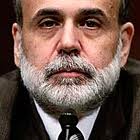
Of course, the Fed will not be using taxpayer money to buy bonds. Instead, it will expand the U.S. money supply and electronically credit banks with more funds. To understand how this works, imagine that you wanted to buy shares in an investment, but you don't have the money to do it. Instead of borrowing money against your line of credit to buy into the investment (which would be risky enough on its own), you decide to hack into your bank and credit your account with the money to buy the shares. The only difference is that if you were to do this, you would be locked up as a thief. No one's going to be putting Mr. Bernanke behind bars for this.
Almost immediately after the announcement, ratings firm Egan-Jones cut its credit rating on the U.S. government to "AA-" from "AA," adding that quantitative easing from the Federal Reserve would hurt the U.S. economy and the country's credit quality, that issuing more currency and depressing interest rates through purchasing mortgage-backed securities does little to raise the U.S.'s real gross domestic product, but reduces the value of the dollar. This increases the cost of commodities, which will pressure the profitability of businesses and increase the costs of consumers -- thereby reducing consumer purchasing power.
I can't really disagree with that.
Why does the Fed need to buy mortgage-backed securities? Maybe it's because the yield on them is so low that investors don't consider the risk-reward ratio to be prudent. The Fed is betting that this will keep mortgage interest rates low (it probably will, for now), and that low interest rates will stimulate more homebuyer activity, which will stimulate the economy and create jobs.
But rates have been low for some time now, and demand has remained flat. See the video my latest online seminar, New Opportunities for Mortgage Originators.
“The curious task of economics is to demonstrate to men how little they really know about what they imagine they can design.
The man of system, on the contrary, is apt to be very wise in his own conceit; and is often so enamoured with the supposed beauty of his own ideal plan of government, that he cannot suffer the smallest deviation from any part of it. He goes on to establish it completely and in all its parts, without any regard either to the great interests, or to the strong prejudices which may oppose it.
He seems to imagine that he can arrange the different members of a great society with as much ease as the hand arranges the different pieces upon a chess-board. He does not consider that the pieces upon the chess-board have no other principle of motion besides that which the hand impresses upon them; but that, in the great chess-board of human society, every single piece has a principle of motion of its own, altogether different from that which the legislature might choose to impress upon it.”
― Friedrich A. von Hayek

 RSS Feed
RSS Feed